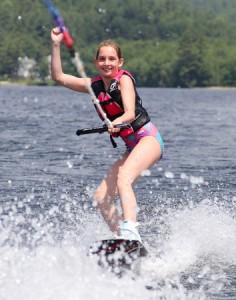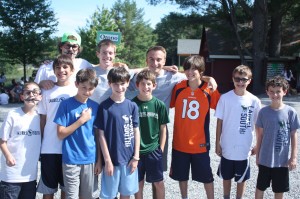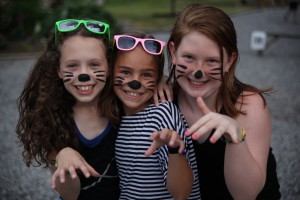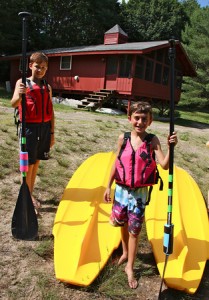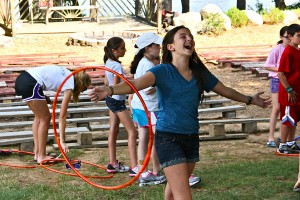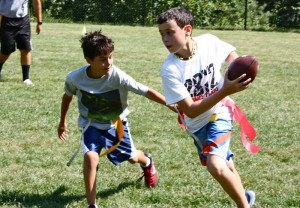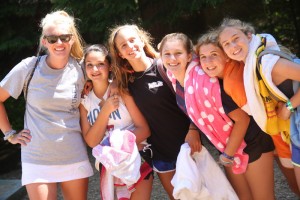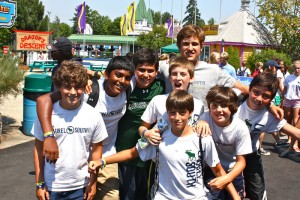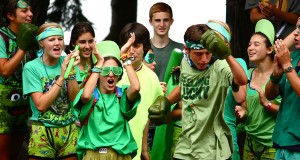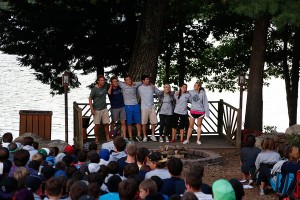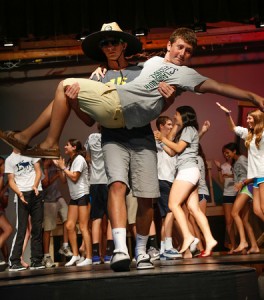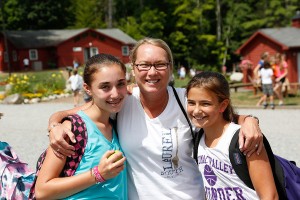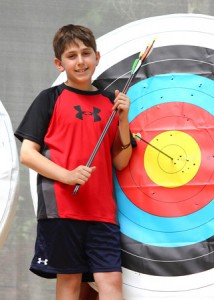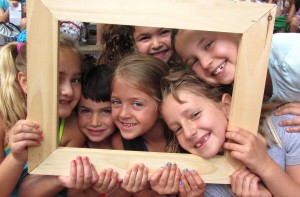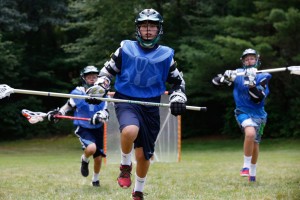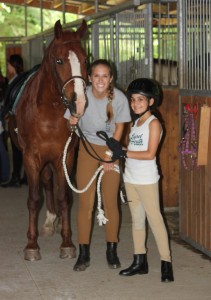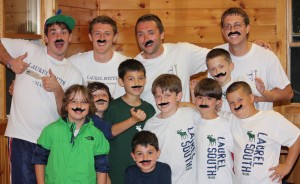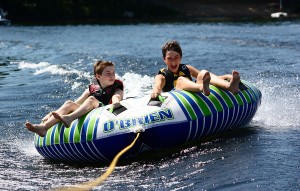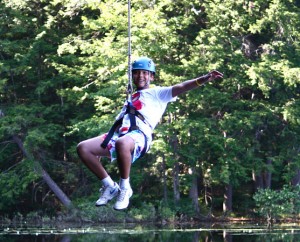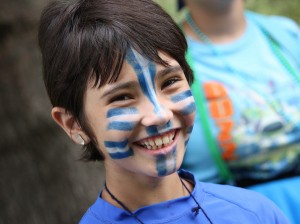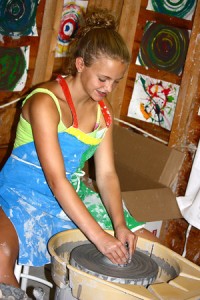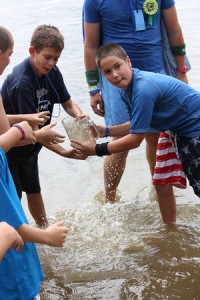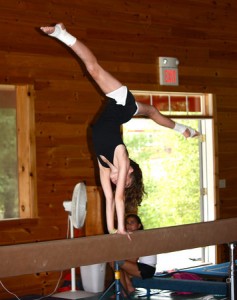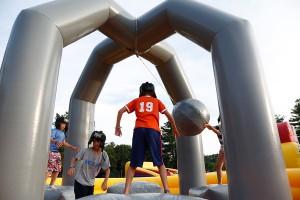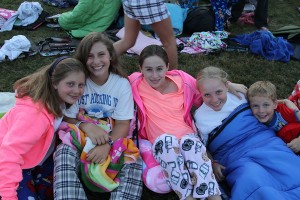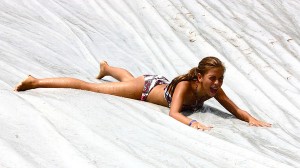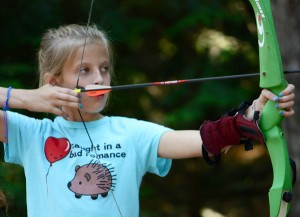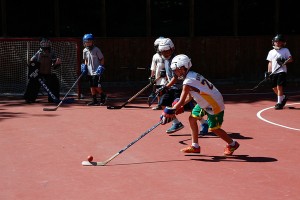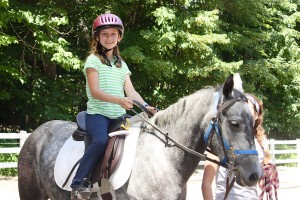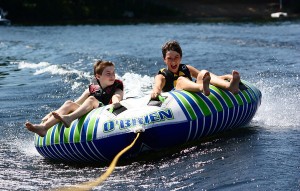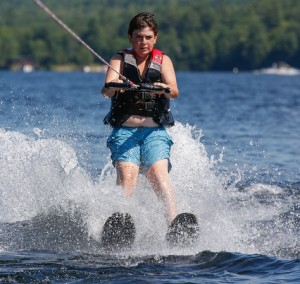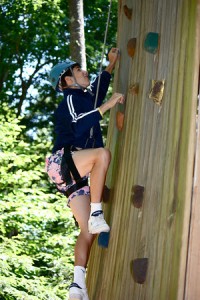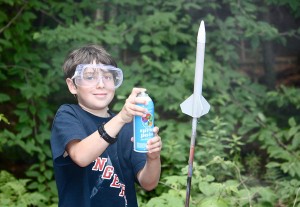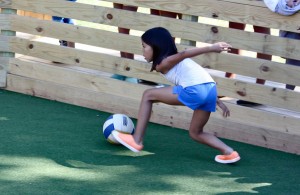Summer camp is often thought of as a whole, a single place where campers convene for several weeks each summer. Few think of summer camp in the context of its smaller parts. Yet, for campers, the special memories that make up “summer camp” in their minds are not merely the product of a whole, but a collection of memories related to its various parts. The overall experience of summer camp not only comprises a special place in the heart of campers, but the memories connected to favorite spots on campus. What are these parts, and why would do campers find them so dear? They’re places that, without, summer camp just wouldn’t be summer camp.
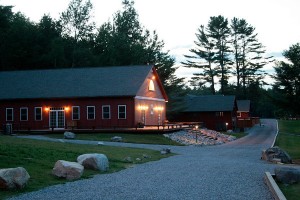 Cabins/Bunks: Some camps call them cabins. Other camps call them bunks. What they have in common is that they are private spaces that a handful of campers at each camp have in common. They live in their bunks, sleep in their bunks, and attend activities with their bunks. Every bunk has its own playlist, inside jokes, special nicknames for each other, and unique games that it enjoys.
Cabins/Bunks: Some camps call them cabins. Other camps call them bunks. What they have in common is that they are private spaces that a handful of campers at each camp have in common. They live in their bunks, sleep in their bunks, and attend activities with their bunks. Every bunk has its own playlist, inside jokes, special nicknames for each other, and unique games that it enjoys.
Dining Hall/Dining Room: At home, the dining room is just a place for campers to eat. But at camp, it’s such an important place that it’s spelled with capital letters. The camp dining facility is not only a place where the camp convenes for meals, but a place full of song and cheer.
Lake: The lake is the hub of a summer camp waterfront. It’s the place where campers 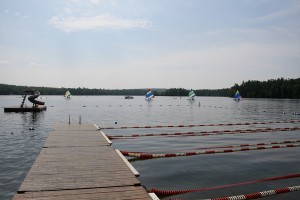 go to swim, boat,waterski, tube, and socialize. It’s so special that, at most camps, every camper goes there at least once a day. Lots of friendships are formed and memories are made on the docks and beaches of the camp lake.
go to swim, boat,waterski, tube, and socialize. It’s so special that, at most camps, every camper goes there at least once a day. Lots of friendships are formed and memories are made on the docks and beaches of the camp lake.
Flagpole/Campfire: Every camp has a special place where the entire camp convenes in the morning and/or evening to officially kick off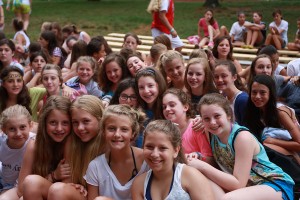 or end the day. This is where sports and competition wins are celebrated and special occasions are marked, and each camp does something just a little bit different to inflict personality into its assembly location to make it a memorable place for campers.
or end the day. This is where sports and competition wins are celebrated and special occasions are marked, and each camp does something just a little bit different to inflict personality into its assembly location to make it a memorable place for campers.
Fieldhouse/Rec Hall/Playhouse: This is another facility that goes by a different name from camp to camp, but is home to memories of camp shows, sing-alongs, athletic events, evening activities, and just about a million other activities. For all intents and purposes, it’s a campus all-purpose building, the place where the entire camp gathers to celebrate activities that are as indispensable to the camp experience as to the camp itself.
camp, but is home to memories of camp shows, sing-alongs, athletic events, evening activities, and just about a million other activities. For all intents and purposes, it’s a campus all-purpose building, the place where the entire camp gathers to celebrate activities that are as indispensable to the camp experience as to the camp itself.
Of course, as merely buildings, these locations make up just a fraction of summer camp campuses. But they’re so full of literally decades of memories that the spirit of the camp emanates from them, and every camper has a nearly endless list of memories that involve them. Not just summer camp, but the anatomy of it is essential to the summer camp in the making of camp memories.


